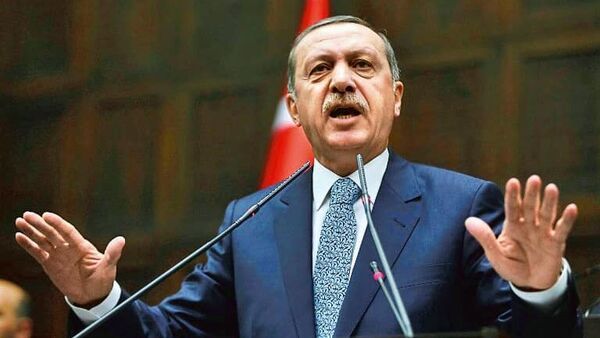Turkey deserves greater attention in New Delhi | Mint

Copyright © HT Digital Streams Limited
All Rights Reserved.
Home/ Opinion / Views/ Turkey deserves greater attention in New Delhi
Turkey’s strongman came to power using democratic means by promising national rejuvenation and talking about civilizational glory and national pride as prongs of domestic and foreign policy. He then remained in power after bending or undermining every national institution to do so. Even marked failures of governance – such as the bungled response to the earthquake in Turkey in February, which caused well over 50,000 deaths – barely dented his popularity.
The political opposition meanwhile was overconfident, helped along by (or leading along) foreign commentators who lacked a concrete understanding of ground realities. Notwithstanding his control of the institutions of the state, Erdogan took no chances in the electoral arena, often using dog-whistles against his opponent, Kemal Kilicdaroglu, a member of the minority Alevi sect in a Sunni-majority country. He also accused the opposition of being a threat to Turkish culture and national security, given their support from the minority Kurdish parties.
Whatever the domestic effects of Erdogan’s rule, there is no doubt he has turned Turkey into a key regional player, unafraid to take risks or make rapid reversals on foreign policy. He has expanded Turkey’s influence in northern Africa, intervened in regional conflicts, and butted heads with the European Union, which has kept Turkey from full membership for decades.
And while Turkey is a member of the NATO military alliance, it has been a difficult partner under Erdogan. In the latest instance, it threatened to veto approval for aspirants Sweden and Finland – which wanted to join the union after Russia invaded Ukraine – on the grounds that they were supporting Kurdish ‘terrorists’, and over Quran-buring incidents in Sweden.
Turkey has also emerged as a major player in defence exports, with its drones proving important to Ukraine on the battlefield. (All the same, the international press, including the Financial Times, has been reporting that Turkey is a key source of off-the-books imports for Russia, which has helped it bypass Western sanctions.)
Turkey’s civilisation politics and influence in its neighbourhood, which overlaps with India’s, are of particular interest to New Delhi. At home, Erdogan is selling himself as a modern-day successor to the Ottomans and believes he is engaged in the task of restoring Turkey’s lost imperial pride and its leadership of the Muslim world.
While it is easy to see Turkey’s criticism of India on the Kashmir issue as the result of close Turkey-Pakistan ties or their common Muslim identity, the reality is possibly more complex. While Turkey has on occasion criticised China’s treatment of its Muslim Uyghur minority – a Turkic people – and hosts Uyghur dissidents, it has also toned down the criticism or ignored the problem like much of the Muslim world, including Pakistan. So there is, alongside the civilizational rhetoric, a transactional reality that is aware of China’s economic power and diplomatic influence. This suggests then that New Delhi has the opportunity to lead Erdogan’s Turkey off the beaten path on Kashmir and other issues of interest to India.
In his speech on the occasion of Erdogan’s visit to India in 2017, Indian Prime Minister Narendra Modi opened with “deep and historical links" between the two countries dating back “hundreds of years" but soon shifted focus to the economic potential of the relationship and to creating a joint front against terrorism. While a new bilateral mechanism, the India-Turkey Policy Planning Dialogue, was institutionalised between the two Foreign Ministries in October 2020, it is currently too much to expect that it will follow a different pattern. This speaks of a limited view in New Delhi of the relationship, and perhaps even a desire to not address potential longer-term challenges.
Given the complicated geopolitics of their common neighbourhood, it is important for India to think more carefully about the implications of Erdogan’s return to power – of how it might harness the increasing Turkish desire to promote its civilisational politics and its inevitable offshoot of trying to influence domestic politics in other countries and to comment on issues affecting the Muslim world. A case in point is Ankara’s recent opposition to the G20 tourism meeting in Srinagar.
As China increases its cachet in West Asian geopolitics, such as through the Iran-Saudi diplomatic deal, India needs to widen its own circle beyond traditional friends like the UAE, Saudi Arabia and Israel. Ankara deserves greater attention and more creative thinking in New Delhi. Perhaps, Erdogan could be invited as the next chief guest for the Republic Day parade. Instead of simply talking about promoting people-to-people ties, the two countries should grab the nettle and directly discuss ways of using their civilizational links.
Catch all the Business News, Market News, Breaking News Events and Latest News Updates on Live Mint. Download The Mint News App to get Daily Market Updates.
More Less
Updated: 02 Jun 2023, 03:24 PM IST
































































